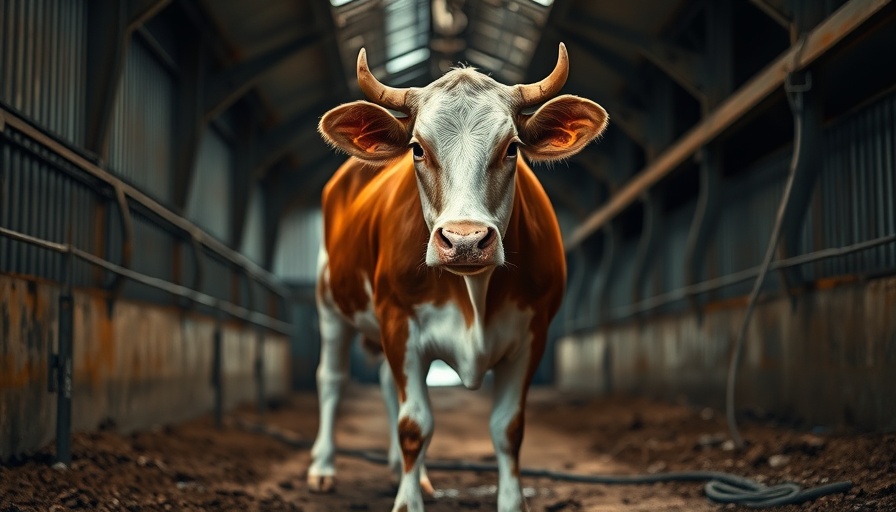
Eating Our Way Towards a Sustainable Future
As climate change escalates, it is imperative to confront uncomfortable truths about our food systems and the role they play in planetary degradation. According to the Plant-Based Treaty, the food sector is a leading contributor to greenhouse gas emissions, with animal agriculture responsible for a staggering 15% of all emissions, and significantly, methane—a gas 30 times more potent than carbon dioxide—abounds in this process. The current trajectory of our meat-heavy diets goes beyond personal health; it’s intertwined with global welfare and sustainability.
In 'Eating our way out of climate collapse', the conversation sheds light on the critical influence our diets have on climate, prompting us to explore this pressing issue further.
Reevaluating Our Dietary Choices
Many still overlook the enormous toll that meat and dairy impose on our environment. Experts reveal that shifting towards a predominantly plant-based diet could be the most effective climate action an individual can take. Surprisingly, animal agriculture occupies 83% of farmland, producing only 18% of the world's calories—an alarming inefficiency that threatens food security and biodiversity.
Why Voting with Our Plates Matters
While political discourse often omits dietary considerations from climate strategies, movements like the Plant-Based Treaty decentralized initiatives aim to put food systems at the forefront of climate action. By endorsing environmentally-friendly dietary habits—such as Meat-Free Mondays—individuals can collectively drive significant change, reminiscent of grassroots movements that instigated historic treaties.
Overcoming Barriers to Plant-Based Living
Critics frequently cite cost as a barrier to adopting plant-based diets, yet the reality is that traditional staples like lentils and pulses often remain affordable and nutritious. A concerted effort must emerge to dismantle food deserts and create equitable access to whole foods. Education and community gardens can pave the way for healthier eating habits, reinforcing food security and empowering underprivileged communities.
Envisioning a Sustainable Tomorrow
The Plant-Based Treaty encapsulates a vision where governments actively negotiate to prioritize sustainable food practices alongside existing climate accords. Enacting small, incremental changes not only optimizes health but also revitalizes the planet. The power to make meaningful choices begins on our plates, influencing our communities and ultimately, the globe.
 Add Row
Add Row  Add
Add 




Write A Comment